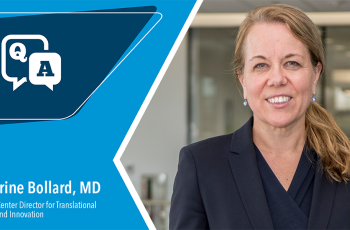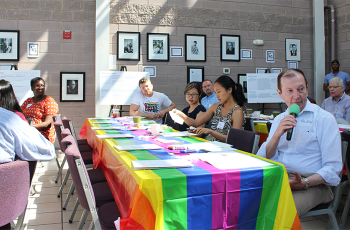News Archive
Adam Friedman, MD, is the senior author of a study on the efficacy of nanoparticles in therapies for triple-negative breast cancer.
Did you know that breast cancer in the United States is the most common cancer in women, except for skin cancers (CDC, 2018)?
WASHINGTON (Sept. 26, 2018) - Rong Li, PhD, will serve as chair of the Department of Biochemistry and Molecular Medicine at the George Washington University (GW) School of Medicine and Health Sciences.
Dr. Adam Friedman joins breast cancer survivor Mariam Said to discuss side effects of cancer treatment and how the Supportive Oncodermatology Clinic at the GW Cancer Center is giving patients hope and resources for relief.
Dr. Bollard is an internationally recognized leader in the fields of immunology and immunotherapy. She also serves as director of the Center for Cancer and Immunology Research at the Children’s Research Institute at Children’s National Health System and as a professor of pediatrics and…
The George Washington University (GW) Cancer Center recently co-hosted a workshop on Improving the Health of the LGBTQ+ Community: Advocating for Ourselves Together at Metropolitan Community Church in D.C.
Norman Lee, PhD, is investigating the mechanism behind dysregulation splicing factor expression.
A study led by Paul Brindley, PhD, is looking at the cellular link between liver fluke and cholangiocarcinoma.
Katherine Chiappinelli, PhD, was awarded a prestigious grant from The G. Harold and Leila Y. Mathers Foundation.
A team at the GW Cancer Center will study the role of the COMPASS complex in the initiation and progression of pancreatic cancer.



